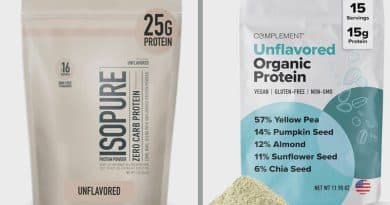How to Avoid Coffee Breath: Tips for Fresh Morning
Do you love morning coffee but dread the lingering aftertaste that leaves your breath less than fresh? In this blog post, we’ll explore expert tips and tricks on how to avoid coffee breath, ensuring you can enjoy favorite brew without compromising fresh breath.
We’ll explore everything from the science behind why coffee can lead to bad breath to simple daily habits that can help mitigate it. Whether it’s incorporating certain foods into your breakfast that neutralize odors, using specialized mouthwashes, or even chewing on specific types of gum, there are numerous strategies to keep your breath minty fresh.
We will also discuss the importance of maintaining good oral hygiene and how regular brushing and flossing can make a significant difference.
From effective quick fixes to more robust long-term solutions, get ready to discover everything you need to know to keep your breath fresh and your coffee enjoyment uninterrupted.
Let’s get started on ensuring your breath stays as pleasant as your morning ritual.
How to Avoid Coffee Breath: Top Hacks for Freshness
Here are immediate actions you can take to combat coffee breath.
1. Drink Water
One of the simplest ways to combat coffee breath is to drink water. It helps rinse out the mouth and kickstarts saliva production, which naturally cleanses your oral cavity.
Why It Works
- Hydrates the mouth: Water keeps mouth moist, preventing dryness that can exacerbate bad breath.
- Washes away residue: It helps in flushing out the residues of coffee that cling teeth and tongue.
- Promotes saliva production: Saliva acts as a natural cleanser, breaking down food particles and neutralizing acids.
2. Chew Sugar Free Gum
Chewing gum stimulates saliva flow and masks lousy breath with its minty flavor.
Benefits
- Instant freshness: Mint flavor provides an immediate fresh breath sensation.
- Increased saliva: More saliva means better cleaning of mouth.
- Convenient and portable: Easy to carry around and use anytime you need a quick breath freshener.
3. Brush Your Teeth
If possible, brush your teeth after drinking coffee. If you’re frequently on the go, carry a travel toothbrush and toothpaste.
Advantages
- Brushing effectively removes coffee particles and plaque.
- Minty toothpaste gives you a refreshing feeling.
- Regular brushing keeps your mouth healthy and reduces the risk of dental problems.
4. Use Mouthwash
A quick swish with Mouthwash can kill bacteria and provide a burst of freshness. Opt for an alcohol free formula to prevent further drying out your mouth.
Perks
- Mouthwash eliminates bacteria responsible for bad breath.
- Provides a clean and refreshing mouthfeel.
- Convenient for use anytime, anywhere.
Long Term Strategies to Avoid Coffee Breath
If you’re aiming for lasting improvements, here are some long-term methods to prevent coffee breath.

5. Stay Hydrated
Make it a habit to drink plenty of water throughout the day, not just after coffee. Staying hydrated ensures that your mouth doesn’t dry out, reducing the risk of bad breath.
Tips
- lways have water within reach to maintain hydration.
- se apps or alarms to remind you to drink water regularly.
- hoose foods rich in water, such as fruits and vegetables, to help maintain good hydration levels.
6. Maintain Oral Hygiene
Maintaining good oral hygiene is vital. Brush twice daily, floss consistently, and use a tongue scraper to eliminate bacteria from the tongue.
Routine
- Brush for two minutes: Ensure you cover all areas of your mouth.
- Floss thoroughly: Remove food particles and plaque between your teeth.
- Use a tongue scraper: Clean your tongue to eliminate bacteria and prevent bad breath.
7. Opt for Black Coffee
Choosing to forgo milk and sugar can greatly decrease the chances of developing coffee breath. Drinking black coffee results in less residue and avoids introducing extra odor-causing elements.
Benefits
- Fewer residues: Black coffee doesn’t leave behind sticky residues.
- Lower calories: A healthier alternative with fewer additives.
- Enhanced coffee flavor: Enjoy the pure taste of coffee.
8. Eat Breath Freshening Foods
Certain foods naturally freshen your breath. Apples, celery, and carrots act as natural toothbrushes, scrubbing away plaque and stimulating saliva.
Best Choices
- Crunchy fruits and veggies: Act as natural scrubbers for your teeth.
- Herbs like parsley and mint: Naturally freshened breath.
- Probiotic-rich foods like yoghurt Promote good bacteria in your mouth.
9. Avoid Smoking
Smoking exacerbates lousy breath and can make coffee breath even worse. Quitting Smoking can dramatically improve oral health and freshness of breath.
Benefits
- Improved overall health: Reduces the risk of numerous health issues.
- Fresher breath: Eliminates the strong odor associated with smoking.
- Enhanced sense of taste: Enjoy food and beverages more fully.
10. Regular Dental Check-Ups
Visit dentist regularly for cleanings and check-ups. Professional cleaners can remove plaque and tartar that regular brushing might miss.
Why It Matters
- Prevents dental issues: Early detection and prevention of potential problems.
- Keeps oral hygiene in check: Professional advice and care for maintaining oral health.
- Early detection of problems: Address issues before they become serious.
Natural Remedies for Fresh Breath
If you enjoy natural remedies, here are some ingredients straight from your kitchen that can be beneficial.
1. Baking Soda Rinse
A rinse made from a teaspoon of baking soda dissolved in water can neutralize odors.
How to Use
- Mix baking soda in water: Dissolve a teaspoon of baking soda in a glass of water.
- Swish for 30 seconds: Swirl the mixture around your mouth.
- Spit out and rinse with plain water: Ensure no residue remains.
2. Green Tea
Green tea contains catechins, which have natural antibacterial properties that can help reduce bad breath.
Consumption Tips
- Drink unsweetened green tea: Avoid added sugars, which can contribute to bad breath.
- Swish it in mouth before swallowing: Maximize its antibacterial properties.
- Enjoy a cup after coffee: It helps cleanse your mouth.

3. Apple Cider Vinegar
Diluted apple cider vinegar can help balance the pH in mouth, creating an environment that is less favorable to bacteria.
Preparation
- Mix one tablespoon in a glass of water: Dilute to avoid damage to your enamel.
- Swish around your mouth: Rinse thoroughly.
- Spit out and rinse with plain water: Ensure no acidic residue remains.
Sometimes, avoiding coffee breath requires a few lifestyle tweaks.
4. Monitor Diet
Certain foods and drinks can worsen bad breath. Monitor your Diet to identify any culprits.
Foods to Watch
- Garlic and onions: Known for their pungent odors.
- Sugary snacks: Sugars can feed bacteria in your mouth.
- Dairy products Can leave residues that contribute to bad breath.
5. Reduce Stress
Stress can lead to dry mouth, which in turn causes bad breath. Engage in techniques that alleviate stress, like yoga, meditation, or deep breathing exercises.
Methods
- Regular exercise: Helps reduce overall stress.
- Mindfulness practices: Keep your mind calm and reduce anxiety.
- Adequate sleep: Ensures the body is well-rested and functioning correctly.
6. Limit Alcohol
Alcohol can dry out your mouth, making it easier for bacteria to thrive. Limiting your intake can help maintain fresh breath.
Tips
- Alternate alcoholic drinks with water: Keeps you hydrated.
- Choose lower-alcohol options: Less likely to dry out your mouth.
- Drink responsibly: Maintain overall health and well-being.
Implementing these immediate and long-term strategies can help you manage and prevent coffee breath, ensuring your breath stays fresh and pleasant throughout the day.
What Causes Coffee Breath?
Before diving into solutions, let’s understand what causes coffee breath. When you sip on coffee, several factors contribute to that less than desirable odor:
Dehydration: Coffee acts as a diuretic, which means it can lead to dehydration. When you consume coffee, it increases urine production, leading to a loss of fluids. A dry mouth exacerbates lousy breath because saliva, which helps wash away food particles and bacteria, is reduced.
Saliva is key in neutralizing the acids that bacteria produce. Without enough saliva, the mouth becomes more welcoming to odor-causing bacteria.
Acidity: Coffee is highly acidic, creating an environment in mouth where odor causing bacteria thrive. The acidic nature of coffee can also erode tooth enamel over time, making teeth more susceptible to decay and further contributing to bad breath.
The lowered pH in the mouth can disrupt the natural balance of bacteria, favoring the growth of those that produce foul odors.
Dairy Additions: If you take coffee with milk or cream, the lactose can break down into sour-smelling compounds in your mouth. The proteins in dairy products can feed bacteria, leading to increased production of sulfur compounds, which are often responsible for bad breath.

Lingering Compounds: The natural oils in coffee beans leave behind a residue that sticks to your tongue, teeth, and gums, contributing to bad breath. Residue can be challenging to remove with regular brushing and may require more thorough oral hygiene practices.
These compounds can build up, making it harder to maintain fresh breath even after you’ve brushed your teeth.
Final Verdict: How to Avoid Coffee Breath
Understanding how to avoid coffee breath is essential for maintaining fresh breath throughout the day. Coffee is a beloved beverage for many, but it can, unfortunately, leave an unpleasant odor lingering in your mouth.
To counteract this, incorporating simple habits such as drinking plenty of water, chewing sugar free gum, and opting for breath freshening foods like apples, parsley, or yoghurt can be highly effective. Brushing your teeth and using Mouthwash after coffee break can provide an extra layer of freshness.
By making these minor adjustments to your routine, you can enjoy your favorite brew without worry.
Remember, small changes can make a significant difference in daily life and help you feel more confident in social and professional interactions.
FAQs of How to Avoid Coffee Breath
Q:Does drinking coffee through a straw help avoid coffee breath?
A:Yes, drinking through a straw can minimize contact between coffee and your teeth, reducing residue and acidity exposure.
Q:Are there specific types of coffee that cause less lousy breath?
A:Cold brew and light roast coffees are generally less acidic and may cause less coffee breath compared to dark roasts.
Q:Can herbal teas replace coffee to avoid bad breath?
A:Herbal teas are a great alternative as they are less likely to cause bad breath and can still provide a comforting, warm beverage experience.
Q:How often should I visit the dentist to avoid bad breath?
A:It’s recommended to visit the dentist every six months for a professional cleaning and check-up.
Q:Is there a specific type of Mouthwash that works best for coffee breath?
A:Opt for alcohol free mouthwashes with antibacterial properties to effectively combat coffee breath without drying out your mouth.
Q:How to prevent coffee breath?
A:To prevent coffee breath, drink water before and after coffee, brush your teeth, use a tongue scraper, chew sugar-free gum or mints, and consider switching your toothpaste.




